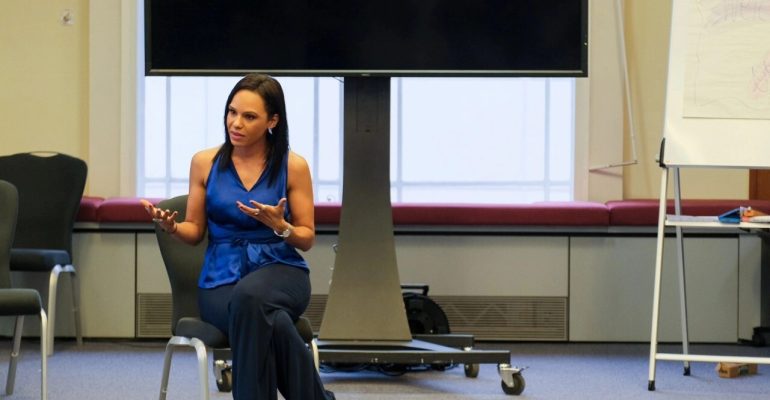A Call for Emerging & Experienced Leaders to Scrutinise Privilege

A Call for Emerging & Experienced Leaders to Scrutinise Privilege
Of course, I still get triggered – even with all my coaching, mediation, neuroscience training, certifications, supervision and experience! We all do. We are human.
So, I was deeply affected by the Trump and Zelensky interaction. The stark power imbalance was hard to watch and has kept replaying in my mind. Beyond all the debates and political discourse, it also brought me back to three particularly painful workplace experiences from my early career.
In those moments when I was disrespected and humiliated, I didn’t have the power or privilege to choose who I worked with. Those who held privilege failed to protect me or challenge the abuse, and my self-worth took a serious hit. And yet, I rose.
Over the years, I’ve learned to protect and prioritise my mental health. I focus on “My Why,” on taking care of mental health and on ensuring that my decisions align with my core values. This intentionality has made me more fulfilled, even when old wounds resurface.
So beyond the obvious reasons, why did that recent interaction trigger me?
It reminded me of a simple truth: those who hold power, often unearned, have a responsibility to use it in service of those who don’t.
Where are we, as leaders, abusing our privileges – perhaps unintentionally – because we can’t fully acknowledge them, or because using them in service of others demands that we share or even cede some control?
Scrutinise Your Privilege
In my Let Go Leadership book – and especially in our Leader As Coach programme – we address this head-on. We delve into the ways leaders can identify their biases, rethink command-and-control styles, and instead create environments that empower all voices. This involves:
- Embracing Vulnerability: Acknowledge that you don’t have all the answers. Being open about your challenges fosters trust and invites honest dialogue.
- Co-Creating Vision: Collaborate with your team to establish clear roles and shared goals, ensuring that the collective vision reflects inclusivity and mutual empowerment.
- Seeking Feedback: Listen to those who don’t share your advantages. Often, it’s their insights that reveal where your privilege might be unintentionally causing harm.
- Sharing and Ceding Power: True leadership involves recognising that privilege is best used to uplift others, not to hold onto control.
My own journey has taught me that leadership is a collective effort. It’s about recognising that while privilege can make us feel powerful, its true value lies in how we use it to serve and uplift others.
So, whilst we’re all judging, I invite you to also reflect on your own experiences – whether as an emerging leader or a highly experienced one, consider this question:
What steps are you taking to use your power and privilege in a way that benefits those that do not have them?












